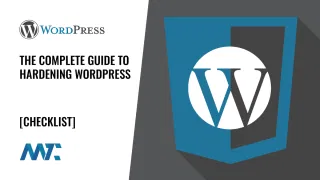What PHP Extensions Should Your Host Provide for a High-Performance WordPress Site?
When choosing a WordPress host, knowing they support the latest PHP version or include caching is not enough. The true test of hosting quality often lies beneath the surface—in the PHP extensions that are enabled server-side. These extensions power everything from database communication to image manipulation and API interaction to performance optimization.
Understanding which PHP extensions are active on your server can help ensure your environment is properly equipped, whether you’re troubleshooting plugin errors, optimizing for scale, or simply ensuring maximum compatibility.
Here’s an updated, comprehensive look at what you should expect from a modern hosting provider—both the minimum extensions for baseline functionality and the advanced ones for high performance—and how to verify what’s loaded.
Minimum PHP Extensions for WordPress Hosting
These extensions should be considered essential for any WordPress installation, as they require WordPress core, standard plugins, or theme functionalities.
- curl: Enables HTTP requests to remote APIs. WordPress uses
curlextensively in its HTTP API to fetch update information, ping services, retrieve feeds, and communicate with third-party services like Mailchimp, Jetpack, or payment gateways. - fileinfo: Detects the MIME type of uploaded files. This is critical for preventing malicious uploads and validating media formats during the upload process.
- json: Enables JSON encoding and decoding—an essential part of modern web development. WordPress uses it heavily in its REST API and many JavaScript-based admin features rely on it.
- mbstring: Stands for multibyte string, which allows Unicode and multibyte encodings to be manipulated. It’s essential for proper character handling in multilingual content, including slugs, excerpts, titles, and more.
- mysqli or pdo_mysql: One of these is necessary for WordPress to connect to its MySQL database.
mysqliis the default and offers procedural and object-oriented syntax, whilePDOsupports database abstraction and prepared statements. - SimpleXML: Provides a simple API to read and manipulate XML data. Though modern APIs use JSON, many legacy plugins and third-party integrations (especially in the RSS and enterprise software space) still rely on XML parsing.
- xmlreader / xmlwriter: Lower-level XML tools for streaming XML reading or writing. These are sometimes used as lighter-weight alternatives to DOM-based XML parsers in plugins that process feeds or large data sets.
- zip: Enables PHP to open, extract, and create ZIP archives. WordPress uses it to handle plugin and theme installations or updates via the admin panel.
Advanced PHP Extensions for High-Performance Hosting
These extensions are not strictly required, but high-end WordPress hosting platforms often include them to enhance caching, image handling, mathematical processing, and compatibility with advanced plugin ecosystems.
- bcmath or gmp: Allow high-precision math operations, useful for financial, scientific, or cryptographic applications. Plugins handling e-commerce pricing, cryptography, or calculations may depend on these.
- exif: Extracts metadata from images, such as orientation, camera model, and geolocation. WordPress uses this to correct image orientation on upload—especially useful for photos from smartphones.
- gd or imagick: Image manipulation libraries. Both are used by WordPress for cropping, resizing, rotating, and watermarking images.
imagickis more powerful and accurate but also more resource-intensive.gdis faster and more widely supported. - intl: Provides internationalization support, including locale-aware date formatting, sorting, and number formatting. Useful for multilingual or regionally customized sites. WooCommerce and translation plugins often use it.
- ionCube Loader: Allows execution of encrypted PHP code, typically used by commercial plugins to protect their source code. This extension is required if you’re using a plugin or software that’s obfuscated or licensed.
- OPcache: Caches compiled PHP bytecode in memory, dramatically reducing execution time for repeated requests. This is essential for performance in any PHP environment and is supported by WordPress core.
- Redis or Memcached: In-memory key-value stores used for object caching. With the right configuration and plugins (like
Redis Object Cache), these extensions can store database query results and reduce server load, speeding up page loads dramatically. This was an big factor in me migrating Martech Zone to Rocket. - soap: Supports the SOAP protocol, which is used by some older or enterprise APIs (such as Salesforce or certain financial/CRM services). Not commonly required, but occasionally indispensable for B2B integrations.
How to Check Which PHP Extensions Are Available
You can verify the PHP extensions available on your server using a few built-in methods.
1. phpinfo()
Create a temporary file named phpinfo.php in your web root with the following content:
<?php phpinfo(); ?>Navigate to https://yourdomain.com/phpinfo.php. This will output a full report of your PHP configuration, including all enabled extensions under the Loaded Extensions section.
Warning: Once you’re done, delete this file! It exposes sensitive configuration details that crawlers of malware sites often utilize to find vulnerable servers. Leaving a phpinfo() file publicly accessible can reveal your server’s PHP version, active extensions, file paths, and environment variables, which can be exploited in targeted attacks or automated scans. Never leave diagnostic tools like this exposed in a production environment.
2. get_loaded_extensions()
If you prefer a programmatic or filtered list:
<?php print_r(get_loaded_extensions()); ?>Or, to check for a specific one:
function isExtensionLoaded($extension) {
return in_array(strtolower($extension), array_map('strtolower', get_loaded_extensions()));
}
if (!isExtensionLoaded('curl')) {
echo "curl is not available. Some WordPress features may not function correctly.";
}This is especially helpful for plugin developers who want to degrade functionality if a critical dependency isn’t available gracefully.
Why This Matters for WordPress Users and Developers
Many performance issues and plugin failures trace back to missing extensions. A plugin that relies on curl or SimpleXML won’t work correctly if those libraries aren’t enabled—and error messages are often vague or unhelpful.
High-performance extensions like OPcache, Redis, and imagick can significantly boost page speed and resource efficiency. They reduce database and CPU load, particularly important for high-traffic or ecommerce WordPress sites.
Choosing a host that prioritizes a well-rounded PHP environment means better compatibility, faster performance, and fewer support headaches.







